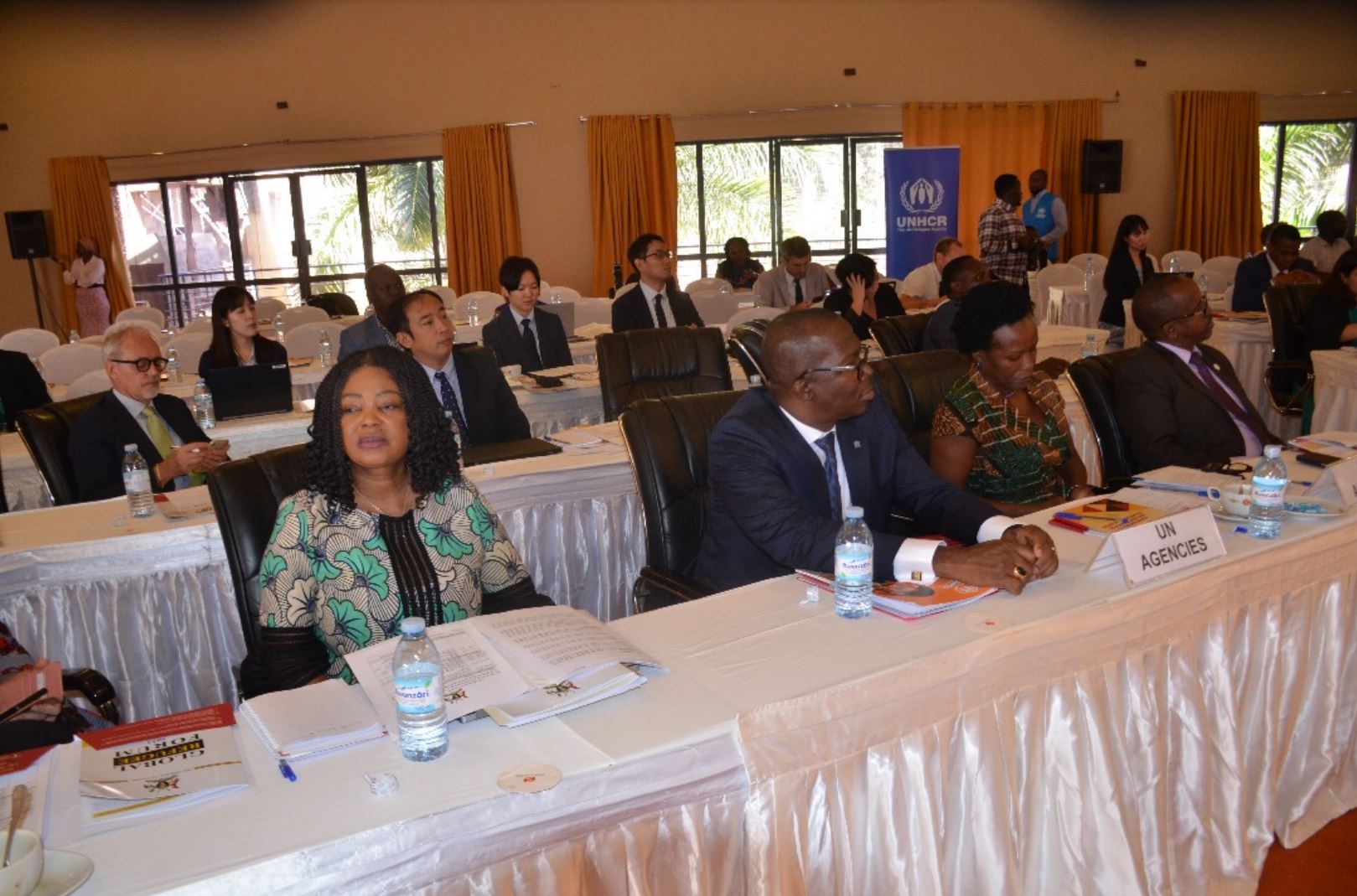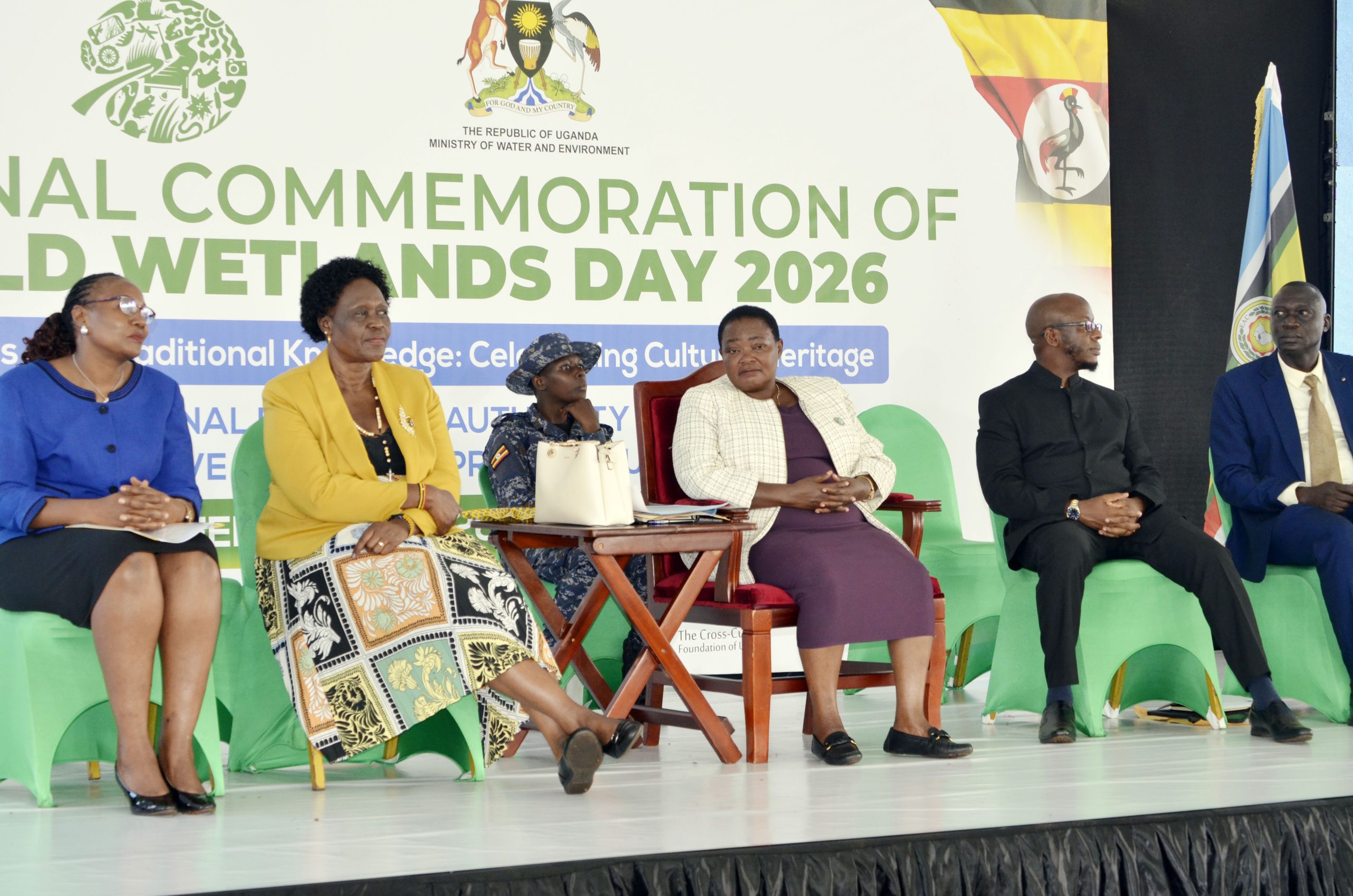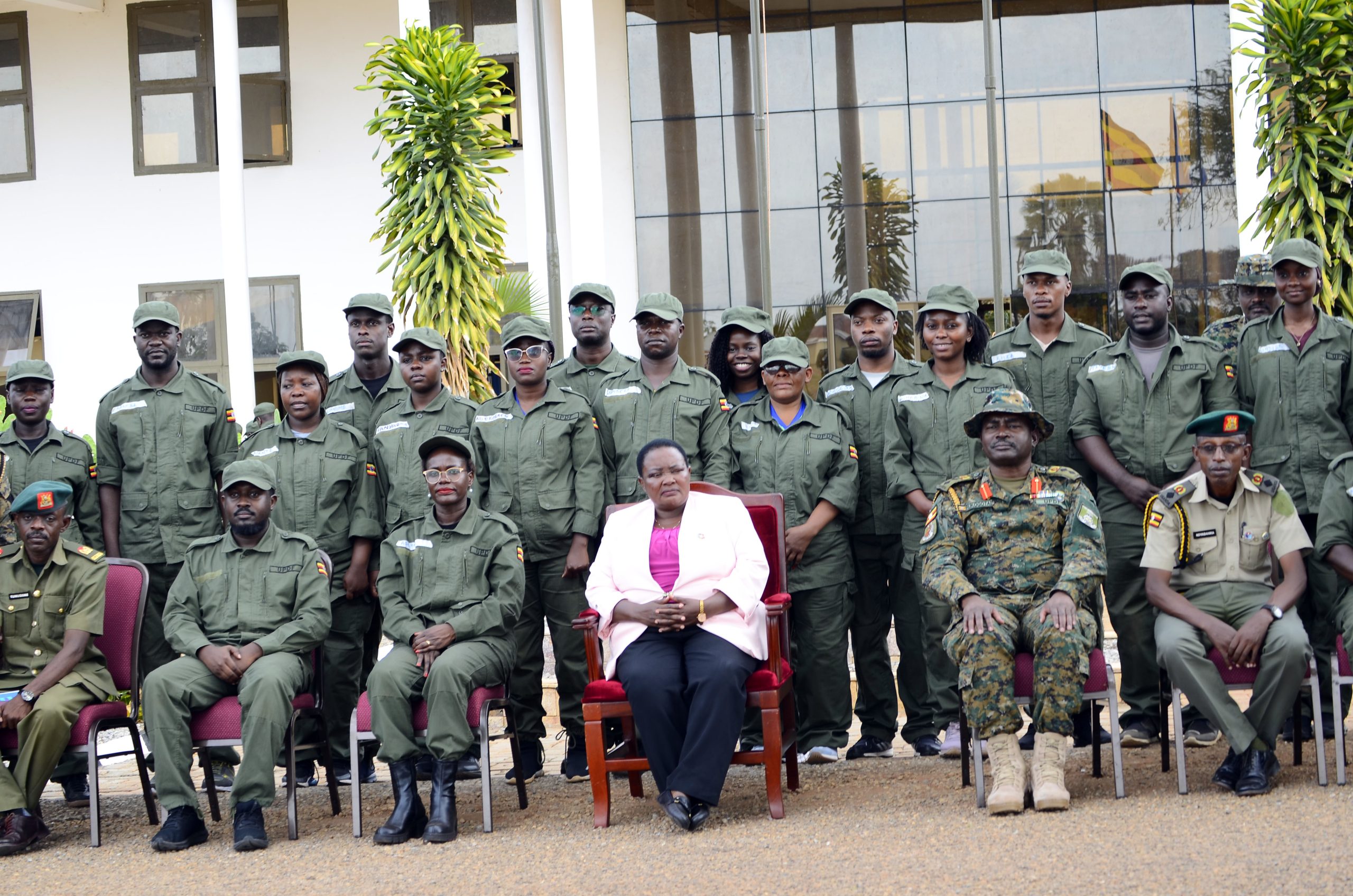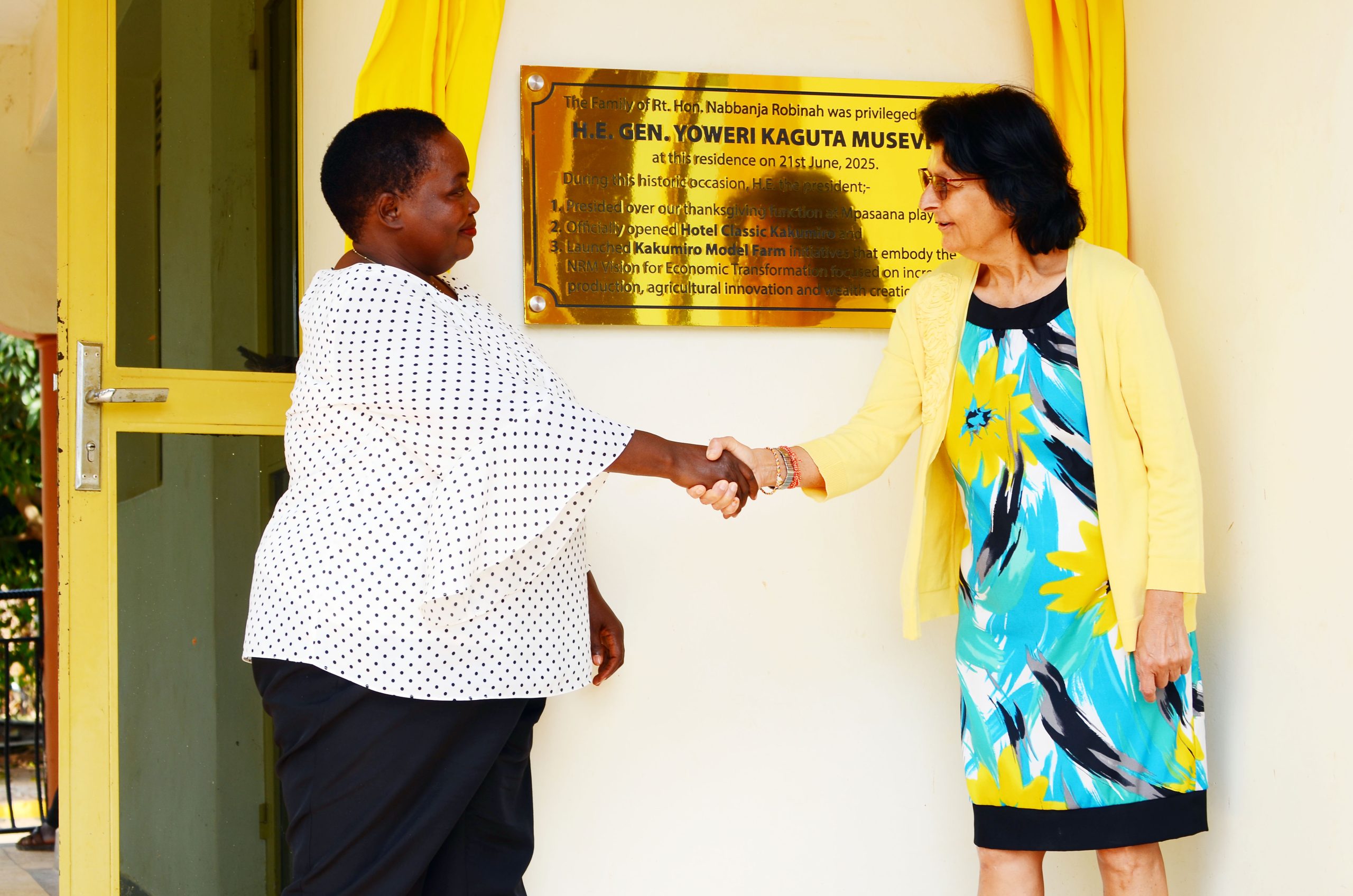By: Pascal Kwesiga
MUNYONYO

PM Nabbanja while announcing Uganda’s pledges during the Pre-GRF Conference in Kampala
Uganda has announced its pledges ahead of the Global Refugee Forum (GRF), which is slated to run between December 13 and 15 in Geneva, Switzerland.
The pledges fall within the five thematic areas, which Uganda deems critical to its national refugee response.
Under the leadership of the Office of the Prime Minister, Uganda, which will convene the GRF together with Japan, France, Colombia, Niger and Jordan, chose the five thematic areas as the most critical parts of the refugee response that need funding.
The five areas include increasing resilience and self-reliance for refugees and host communities; addressing environment, climate change, and energy challenges; localising the refugee response: strengthening the role of local and national responders; securing durable solutions for refugees; and transition management: pathways to sustainable burden-sharing.
Prime Minister Robinah Nabbanja announced the pledges to ambassadors and development partners during the pre-GRF conference at Speke Resort in Munyonyo in Kampala on 9 November 2023.
Resilience and self-reliance
The Government pledges to create a minimum of 300,000 viable economic opportunities for refugees and host communities by 2027.
This, the Prime Minister said, will be realised by including refugees in agricultural value chains, increasing agricultural production and productivity, access to irrigation and mechanisation technologies and enabling private sector investments.
Others are promoting market systems development approaches, increasing access to formal and non-formal vocational skills training and promoting the development of market-relevant skills and employment creation.
To increase resilience and self-reliance for refugees and host communities, the Government said it will also establish and operationalise five regional job centres with satellite stations in 13 refugee settlements and host communities by 2027.
It also said it is committed to improving agricultural productivity by increasing access to irrigation and mechanisation technologies for at least 300,000 smallholder farmers in the refugee settlements and host communities.
The Government pledged to promote agricultural value-addition by providing “matching grants” and subsidies for machinery, post-harvest management, secondary processing equipment and appropriate infrastructure facilities.
It will also facilitate the development of at least “15 agricultural value chains” in refugee settlements and host communities.
In addition, the Government is committed to increasing access to agricultural extension services to at least 300,000 smallholders in refugee settlements and host communities.
Environment, climate change, and energy
The Government said it is committed to including refugees in its nationally determined “contributions and adaptation plans” to effectively reduce the carbon emissions from deforestation, and increase access to safe, clean, and affordable energy in refugee hosting districts by 2027.
To achieve this, the Government intends to promote gender-responsive, low-carbon and climate-resilient development, strengthen early-warning systems for climate-related disaster risk reduction and boost management of plastic, solid and e-waste management through public-private partnerships.
It will also promote access and utilisation of safe, clean, and energy-efficient technologies for cooking and lighting in all refugee-hosting districts.
Localising the Refugee Response
Nabbanja said the Government will include localisation provisions in strategies and frameworks for the refugee response to strengthen the role of national and local responders. The Government will ensure that at least 25% of partner resources are directed to local actors.
Durable Solutions for Refugees
The Government has pledged to support peace-building processes and negotiations that will encourage refugees to return home voluntarily.
It will also create opportunities for all refugees to access electronic conventional travel documents and birth certificates by 2027 to foster socio-economic rights and children’s rights.
Transition
The Government is committed to continuing to manage and integrate infrastructure and services specifically in health, education, and water. It will also put in place a transitional strategy and guidelines to facilitate coordinated transition planning and management.
The Prime Minister will present the same pledges at the GRF. The Government hopes that this will inform funding to Uganda’s refugee response from the development partners.
END





